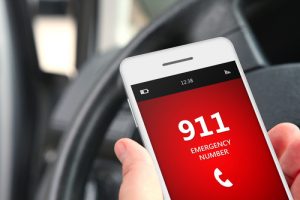
Although states are making progress in deploying Next-Generation 911 (NG911) technology, U.S. Rep. Marsha Blackburn (R-TN) said during a subcommittee hearing on Wednesday that obstacles related to funding, governance and cybersecurity remain.
Blackburn, the chairwoman of the House Energy and Commerce Subcommittee on Communications and Technology, convened the hearing to examine the progress of the NG911 initiative, which began in 2004. NG911 aims to take advantage of technical advancements, like text or video, of IP-based networks that allow people to connect to 911 services from any wired, wireless, or IP-based device.
“Realizing NG911 services throughout the nation is critical, but as with any large-scale transition there are challenges that must be overcome,” Blackburn said. “Issues regarding such matters as funding, governance and ensuring the security of the network are but a few. …Yet while funding is a challenge, studies reveal a troubling pattern whereby some states divert money collected from consumers intended for 911 services that could assist with the NG911 transition.”
According to the Federal Communications Commission, more than $220 million, or approximately 8.4 percent of the total collected by states, was diverted for purposes other than 911.
Blackburn and U.S. Rep. Greg Walden (R-OR), the chairman of the House Energy and Commerce Committee, heard from a panel of witnesses who testified about the importance of public-private collaboration and the need for timely implementation of NG911.
“Every member of this committee should agree to work together to tackle this issue aggressively,” Blackburn said. “We should recognize that this transition is underway and these challenges are not insurmountable. According to an FCC report, twelve states report that NG911 is operational in 100 percent of the state — my home state of Tennessee among them. A solid start for our nation but well short of where I think we need to be.”
Walden said people carry devices that allow them to communicate by voice, text, email and video in their pockets. And first responders will soon have a dedicated nationwide broadband network to improve communications through FirstNet.
“But our 911 networks, which are based on the technologies of the past, do not provide a seamless connection between the two,” Walden said. “Only by bringing IP-based technology to the Nation’s Public Safety Answering Points — the professionals that are the first voice you hear when you call for help — can we bring the full promise of modern technology to serve us in times of emergency.”
U.S. Rep. Susan Brooks (R-IN) said during the hearing that Indiana has prioritized emergency communications thanks to the leadership of Barry Ritter, the executive director of the Statewide 911 Board of Indiana, who testified before the subcommittee.
“We teach our kids to ‘call 911’ in an emergency,” Brooks said. “The reality is, most people today are more inclined to text or call 911 from a wireless device than to use a landline phone to call. Because of Indiana’s rapid implementation of NG911 technology, they can call, text and even send video to 911. As each state’s 911 services continue to evolve, it is critical that we take opportunities to learn from successful programs and transitions, like the design and implementation of Indiana’s modern NG911 network.”
Ritter, meanwhile, testified that NG911 is a critical tool for public safety across the country.
“As an early adopter, Indiana has demonstrated strong leadership and cooperation in creating a successful program that benefits the citizens of our communities,” Ritter said.



